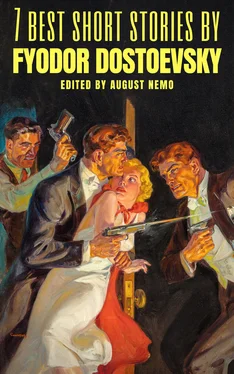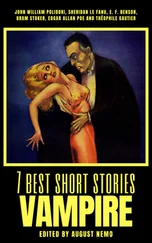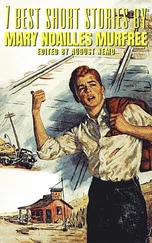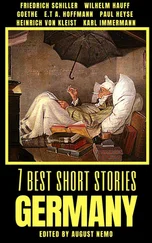Dashed to the crest of the waves, bumped and battered on the stones at the bottom, it is difficult for an English reader to feel at ease. The process to which he is accustomed in his own literature is reversed. If we wished to tell the story of a General's love affair (and we should find it very difficult in the first place not to laugh at a General), we should begin with his house; we should solidify his surroundings. Only when all was ready should we attempt to deal with the General himself. Moreover, it is not the samovar but the teapot that rules in England; time is limited; space crowded; the influence of other points of view, of other books, even of other ages, makes itself felt. Society is sorted out into lower, middle, and upper classes, each with its own traditions, its own manners, and, to some extent, its own language. Whether he wishes it or not, there is a constant pressure upon an English novelist to recognise these barriers, and, in consequence, order is imposed on him and some kind of form; he is inclined to satire rather than to compassion, to scrutiny of society rather than understanding of individuals themselves.
No such restraints were laid on Dostoevsky. It is all the same to him whether you are noble or simple, a tramp or a great lady. Whoever you are, you are the vessel of this perplexed liquid, this cloudy, yeasty, precious stuff, the soul. The soul is not restrained by barriers. It overflows, it floods, it mingles with the souls of others. The simple story of a bank clerk who could not pay for a bottle of wine spreads, before we know what is happening, into the lives of his father-in-law and the five mistresses whom his father-in-law treated abominably, and the postman's life, and the charwoman's, and the Princesses' who lodged in the same block of flats; for nothing is outside Dostoevsky's province; and when he is tired, he does not stop, he goes on. He cannot restrain himself. Out it tumbles upon us, hot, scalding, mixed, marvellous, terrible, oppressive--the human soul.
There remains the greatest of all novelists--for what else can we call the author of War and Peace? Shall we find Tolstoi, too, alien, difficult, a foreigner? Is there some oddity in his angle of vision which, at any rate until we have become disciples and so lost our bearings, keeps us at arm's length in suspicion and bewilderment? From his first words we can be sure of one thing at any rate--here is a man who sees what we see, who proceeds, too, as we are accustomed to proceed, not from the inside outwards, but from the outside inwards. Here is a world in which the postman's knock is heard at eight o'clock, and people go to bed between ten and eleven. Here is a man, too, who is no savage, no child of nature; he is educated; he has had every sort of experience. He is one of those born aristocrats who have used their privileges to the full. He is metropolitan, not suburban. His senses, his intellect, are acute, powerful, and well nourished. There is something proud and superb in the attack of such a mind and such a body upon life. Nothing seems to escape him. Nothing glances off him unrecorded. Nobody, therefore, can so convey the excitement of sport, the beauty of horses, and all the fierce desirability of the world to the senses of a strong young man. Every twig, every feather sticks to his magnet. He notices the blue or red of a child's frock; the way a horse shifts its tail; the sound of a cough; the action of a man trying to put his hands into pockets that have been sewn up. And what his infallible eye reports of a cough or a trick of the hands his infallible brain refers to something hidden in the character, so that we know his people, not only by the way they love and their views on politics and the immortality of the soul, but also by the way they sneeze and choke. Even in a translation we feel that we have been set on a mountain-top and had a telescope put into our hands. Everything is astonishingly clear and absolutely sharp. Then, suddenly, just as we are exulting, breathing deep, feeling at once braced and purified, some detail--perhaps the head of a man--comes at us out of the picture in an alarming way, as if extruded by the very intensity of its life. "Suddenly a strange thing happened to me: first I ceased to see what was around me; then his face seemed to vanish till only the eyes were left, shining over against mine; next the eyes seemed to be in my own head, and then all became confused--I could see nothing and was forced to shut my eyes, in order to break loose from the feeling of pleasure and fear which his gaze was producing in me. . . ." Again and again we share Masha's feelings in Family Happiness . One shuts one's eyes to escape the feeling of pleasure and fear. Often it is pleasure that is uppermost. In this very story there are two descriptions, one of a girl walking in a garden at night with her lover, one of a newly married couple prancing down their drawing-room, which so convey the feeling of intense happiness that we shut the book to feel it better. But always there is an element of fear which makes us, like Masha, wish to escape from the gaze which Tolstoi fixes on us. Is it the sense, which in real life might harass us, that such happiness as he describes is too intense to last, that we are on the edge of disaster? Or is it not that the very intensity of our pleasure is somehow questionable and forces us to ask, with Pozdnyshev in the Kreutzer Sonata , "But why live?" Life dominates Tolstoi as the soul dominates Dostoevsky. There is always at the centre of all the brilliant and flashing petals of the flower this scorpion, "Why live?" There is always at the centre of the book some Olenin, or Pierre, or Levin who gathers into himself all experience, turns the world round between his fingers, and never ceases to ask, even as he enjoys it, what is the meaning of it, and what should be our aims. It is not the priest who shatters our desires most effectively; it is the man who has known them, and loved them himself. When he derides them, the world indeed turns to dust and ashes beneath our feet. Thus fear mingles with our pleasure, and of the three great Russian writers, it is Tolstoi who most enthralls us and most repels.
But the mind takes its bias from the place of its birth, and no doubt, when it strikes upon a literature so alien as the Russian, flies off at a tangent far from the truth.
Dostoyevsky and His Message to the World.
Zinaida Vengerova 2
I often wonder what quality of Russian literature is the one which appeals more particularly to English readers. Russian literary types have certainly a universal scope, but Russian writers seem to attract much more by their originality than by what they have in common with the western ideals. There is another peculiarity of all our best literature which accounts with more right for its bearing on the Western mind. It is the tense atmosphere of Russian novels, of Russian poetry and drama. They all deal with vast problems—social, moral, as well as religious ones—and this is due to a large extent to the rather abnormal conditions of Russian life.
In all the countries of western Europe literature is a world in itself and pursues its own calling. It is not concerned with immediate issues of any kind. The situation in Russia is quite different. We are deprived of free speech and of free action in our public life, and the social progress of Russia is mainly due to the high standard of our literature which is the true mirror of national aspirations and national ideals. The free and progressive instincts of the Russian mind crave to assert themselves; their realization in actual life is still some way off, and literature remains the only means to solve, at least in an ideal way, the problems which some day will be solved in reality. That is the reason why Russian novelists, Russian poets, and even philosophers dealing in metaphysics are imbued with a profound sense of national duties and responsibilities. There is always lurking behind every Russian work of art a sort of mystic image, that of Russia which longs to express her soul, and the highest aim of all Russian literature is to redeem the national spirit from the silence to which it is doomed by the conditions of Russian life. Every Russian author, if he is of any consequence whatever, longs to express the spiritual essence of Russia and to solve her problems.
Читать дальше

![Коллектив авторов - Best Short Stories [С англо-русским словарем]](/books/26635/kollektiv-avtorov-best-short-stories-s-anglo-thumb.webp)










